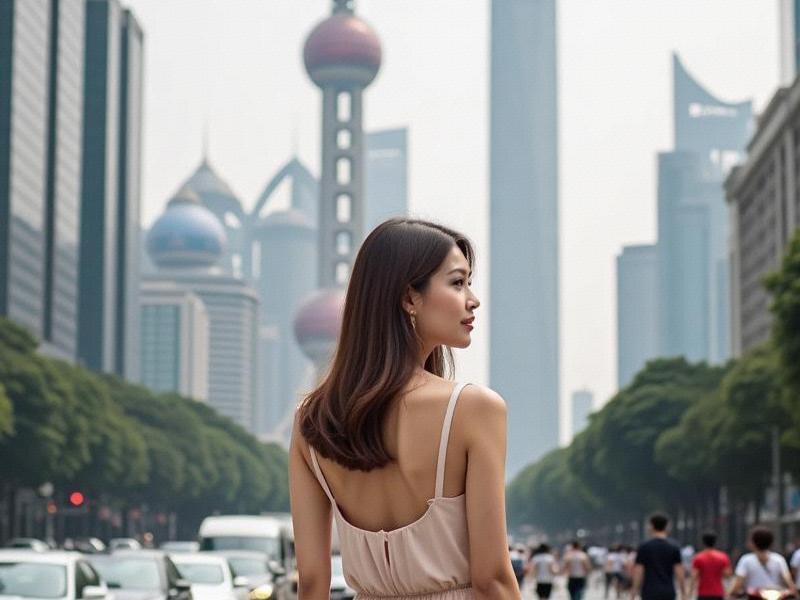
Shanghai has long been celebrated as China's fashion capital, but in 2025, it's the women of this dynamic metropolis who are truly redefining what it means to be modern, sophisticated, and successful in contemporary China. With a unique blend of Eastern traditions and Western influences, Shanghai's female population is creating a cultural identity that's being emulated across Asia.
The Evolution of Shanghai Beauty
The classic "Shanghai Girl" image - pale skin, delicate features, and qipao dresses - has transformed dramatically. Today's Shanghai women embrace a more diverse range of beauty standards, with 68% of women surveyed in a 2025 JD.com report stating they feel confident creating their own style rather than following trends. Dermatology clinics report increasing demand for treatments that enhance rather than completely atlernatural features.
Fashion Frontiers
Shanghai's female-driven fashion scene has birthed several globally recognized designers in recent years. Homegrown brands like "SHCR" (Shanghai Chic Rebellion) by designer Lin Yue have gained international acclaim for blending traditional Chinese elements with streetwear aesthetics. The annual Shanghai Fashion Week now rivals Paris and Milan as a trendsetting event, with over 40% of featured designers being Shanghai-born women.
新夜上海论坛 Workplace Revolution
Women hold 43% of senior management positions in Shanghai-based companies (2025 Shanghai Women's Federation report), significantly higher than the national average of 28%. Tech parks like Zhangjiang High-Tech Park boast numerous female-led startups, particularly in e-commerce, biotech, and AI sectors. Shanghai's implementation of progressive parental leave policies has contributed to higher female workforce retention rates.
The "Steel Magnolia" Phenomenon
This term, coined by local media, describes Shanghai women's unique combination of traditional femininity and formidable business acumen. Women like billionaire investor Jenny Qian (founder of Dragon Gate Capital) exemplify this duality - equally comfortable discussing classical poetry and blockchain technology at high-powered business dinners.
Cultural Preservation Through Modernity
上海龙凤419社区 Shanghai women are at the forefront of preserving cultural heritage through contemporary interpretations. The "New Qipao Movement" has seen young designers modernize the traditional dress for everyday wear, while language schools report increased interest among women in learning Shanghainese dialect to preserve local identity.
Beauty Tech Innovation
Shanghai has become the testing ground for cutting-edge beauty technology, with women driving demand for personalized skincare algorithms and AI-powered makeup applications. Local company Perfect Diary's "Smart Mirror" technology, which uses facial recognition to recommend products, has been adopted by Sephora stores worldwide.
Social Media Influence
Shanghai-based influencers like LuxuryPixie (3.2M followers) have redefined Chinese beauty content creation by focusing on authenticity over perfection. Their "unfiltered Shanghai" movement encourages women to showcase real urban life rather than curated fantasies.
上海喝茶群vx Challenges and Progress
Despite advancements, challenges remain. The average Shanghai woman still spends 2.3 hours daily on beauty routines (2025 Meituan survey), and pressure to maintain youthful appearances persists. However, grassroots movements like "Wrinkles Are My Medals" are gaining traction among professional women over 40.
Global Recognition
International media increasingly references "The Shanghai Look" - characterized by intelligent elegance, sartorial confidence, and cultural fluency. Luxury brands now test products in Shanghai before global launches, recognizing local women as trendsetters rather than mere consumers.
As Shanghai continues its ascent as a global city, its women are writing a new chapter in China's gender narrative - one that balances ambition with authenticity, tradition with innovation, and local identity with global citizenship. Their influence extends far beyond fashion, shaping everything from corporate culture to urban development in China's most cosmopolitan city.
